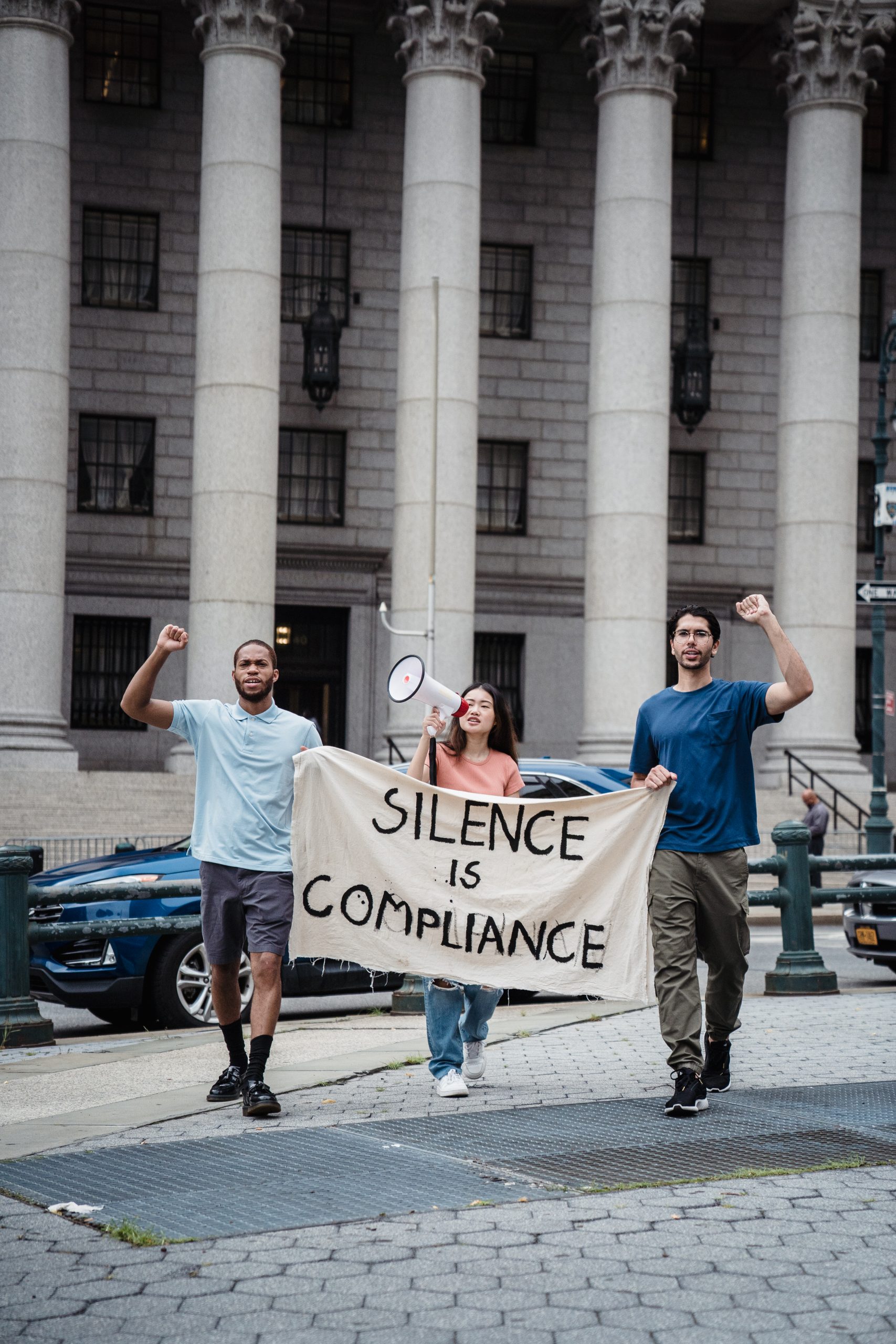Are you a pet industry professional who wants to harness the power of social media to expand your business? In today’s digital age, it is crucial to navigate the complex world of social media compliance to avoid potential legal pitfalls. By understanding the dos and don’ts of social media marketing, you can protect your business from regulatory violations and maintain a strong online reputation. This article provides an overview of social media compliance for the pet industry, offering valuable insights and guidelines to help you effectively navigate this dynamic landscape. Read on to discover key strategies and frequently asked questions that will empower you to use social media as a powerful tool for business growth and success.
Understanding Social Media Compliance for Pet Industry
What is Social Media Compliance?
Social media compliance refers to the practice of adhering to laws, regulations, and guidelines when using social media platforms for business purposes in the pet industry. It involves ensuring that all social media activities, such as advertising, marketing, data privacy, and intellectual property issues, are conducted in accordance with applicable laws and regulations to protect both businesses and consumers.
Why is Social Media Compliance Important for the Pet Industry?
Compliance with social media regulations is crucial for the pet industry for several reasons. Firstly, non-compliance can lead to legal consequences, fines, and reputational damage. Secondly, by complying with regulations, pet businesses demonstrate their commitment to ethical practices, enhancing consumer trust and loyalty. Additionally, compliance helps protect the privacy and security of user data, ensuring a safe online environment for pet owners and businesses alike.
Key Regulations and Guidelines for the Pet Industry
The pet industry must adhere to several key regulations and guidelines when engaging in social media activities. These include:
-
Federal Trade Commission (FTC) Guidelines: The FTC provides guidelines that govern endorsements and testimonials, requiring businesses to disclose any material connections between endorsers and their products or services.
-
General Data Protection Regulation (GDPR): If a pet business operates in the European Union or collects personal data from EU residents, compliance with the GDPR is essential. This regulation defines how businesses should handle personal data and obtain consent from users.
-
Intellectual Property Laws: Pet businesses must respect intellectual property rights, such as trademarks and copyrights, when using social media platforms to avoid infringing on others’ rights.
Consequences of Non-Compliance
Failure to comply with social media regulations in the pet industry can have severe consequences. These may include legal actions, fines, penalties, and damage to the business’s reputation. It can also result in loss of consumer trust and loyalty, leading to decreased sales and negative brand perception. Therefore, it is imperative for pet businesses to prioritize compliance and develop robust social media policies and practices.
Creating a Social Media Policy for Pet Industry
The Importance of a Social Media Policy
A social media policy is a crucial tool for pet businesses to ensure compliance and guide their employees’ behavior on social media platforms. It sets clear guidelines for acceptable usage, ensures consistency in communications, protects the business’s reputation, and provides a framework for addressing potential issues that may arise.
Key Components of a Social Media Policy
A comprehensive social media policy for the pet industry should include the following components:
-
Objectives and Scope: Clearly define the purpose and scope of the policy, identifying the intended audience and specifying which social media platforms are covered.
-
Guidelines for Content Creation: Provide detailed guidelines for creating and publishing content on social media platforms, emphasizing accuracy, professionalism, and respect for intellectual property rights.
-
Employee Conduct: Set expectations for employee behavior on social media, including guidelines on disclosure of affiliation, privacy, respect for others, and avoiding controversial topics.
-
Branding and Messaging: Outline guidelines for consistent branding and messaging to maintain a cohesive and professional brand image across all social media channels.
Effective Communication and Training
To ensure understanding and compliance with the social media policy, pet businesses should prioritize effective communication and training on social media compliance. This can be achieved through:
-
Training Programs: Conduct comprehensive training programs to educate employees on the legal and ethical implications of social media usage, including key regulations and guidelines.
-
Regular Updates: Continuously update employees on changes to regulations, policies, and best practices to keep them informed and mitigate risks associated with non-compliance.
-
Clear Communication Channels: Establish channels for employees to seek clarification, report concerns, or ask questions regarding social media compliance to promote transparency and accountability.
Regular Policy Review and Updates
Given the dynamic nature of social media platforms and regulations, it is crucial for pet businesses to regularly review and update their social media policies. This ensures that the policies remain aligned with the evolving regulatory landscape and address emerging risks and challenges. Regular reviews also provide an opportunity to incorporate feedback and best practices, enhancing the effectiveness of the social media policy.

Social Media Advertising and Marketing
Ethical Marketing Practices for the Pet Industry
Ethical marketing practices in the pet industry encompass transparency, accuracy, and responsible advertising. Pet businesses should avoid deceptive practices, false claims, or misleading advertisements that may misinform consumers. Honesty and authenticity should be prioritized to build trust and maintain a positive brand reputation.
Ensuring Transparency and Disclosure
When using social media for advertising and marketing purposes, pet businesses must ensure transparency and disclosure. Any material connection between the business and influencers, endorsers, or sponsored content must be clearly disclosed to consumers. This includes disclosing any financial or other benefits received in exchange for promoting a product or service.
Avoiding Deceptive Advertising
It is essential for pet businesses to avoid deceptive advertising practices on social media. This includes refraining from false or misleading claims, exaggerated product benefits, or deceptive pricing strategies. Advertisements should accurately represent the product or service being promoted to avoid misleading consumers.
Handling User-Generated Content
User-generated content (UGC) is a valuable asset for the pet industry, as it showcases genuine experiences and interactions with products or services. However, pet businesses must have clear policies and procedures for handling UGC to ensure compliance and mitigate risks. This includes monitoring for potential legal issues, inappropriate content, or copyright infringement before sharing UGC on social media platforms.
Using Influencers and Endorsements
Influencer marketing has become prevalent in the pet industry, but it is essential to navigate this strategy ethically and compliantly. Pet businesses should ensure that influencers and endorsers comply with disclosure guidelines, and any paid endorsements are transparently disclosed. Contracts or agreements with influencers should outline expectations and requirements to protect both the business and the influencer.
Data Privacy and Security
Collecting and Processing User Data
Pet businesses must handle user data on social media platforms with care and in compliance with applicable data privacy laws. When collecting and processing user data, including personal information, businesses should obtain proper consent, clearly outline the purpose of data collection, and adhere to privacy policies.
Obtaining Consent and Privacy Policies
To ensure data privacy compliance, pet businesses need to obtain informed consent from users before collecting and processing their data. Consent should be freely given, specific, informed, and unambiguous. Privacy policies should be transparent, detailing how user data is collected, used, shared, and protected.
Data Security Measures
Pet businesses must implement robust data security measures to protect user data from unauthorized access, disclosure, or misuse. This includes encryption, access controls, regular security assessments, and employee training on data security best practices. Regular monitoring and updating of security measures are crucial to address emerging threats and vulnerabilities.
Data Breach Management
In the event of a data breach, pet businesses must have a clear and comprehensive plan for managing and responding to the incident. This includes promptly notifying affected individuals, authorities, and implementing measures to mitigate the impact of the breach. Regularly reviewing and updating the data breach management plan is essential to ensure preparedness and minimize potential harm.
Intellectual Property Issues
Trademark and Copyright Considerations
To protect pet-based brands and mascots, pet businesses must be mindful of trademark and copyright considerations when using social media platforms. It is essential to conduct thorough searches to ensure that the chosen brand name, logo, or mascot does not infringe upon existing trademarks or copyrighted materials. Obtaining proper intellectual property protection through registrations is recommended to safeguard the business’s assets.
Protecting Pet-Based Brands and Mascots
Pet businesses should actively monitor and enforce their intellectual property rights on social media platforms. This involves taking prompt action against unauthorized use, infringement, or counterfeiting of their pet-based brands and mascots. Regular monitoring and reporting of intellectual property infringements can help maintain brand integrity and prevent consumer confusion.
Online Review and Reputation Management
Importance of Reviews for the Pet Industry
Online reviews play a significant role in the pet industry, influencing consumer purchasing decisions and shaping brand reputation. Positive reviews can attract new customers, while negative reviews can tarnish a brand’s image. Therefore, managing online reviews is crucial for pet businesses to maintain a positive reputation and attract potential customers.
Managing Online Reviews
Pet businesses should actively monitor online review platforms and respond promptly to both positive and negative reviews. Engaging with reviewers demonstrates a commitment to customer satisfaction and allows businesses to address any concerns or issues raised. However, it is essential to maintain professionalism and avoid engaging in confrontational or argumentative discussions.
Dealing with Negative Feedback
Negative feedback is inevitable in any business, but it is crucial for pet businesses to handle it effectively on social media platforms. This involves acknowledging the feedback, apologizing if necessary, and offering a resolution or an avenue for further communication offline. Responding in a timely, empathetic, and professional manner can help mitigate the impact of negative feedback and demonstrate a commitment to customer satisfaction.

Compliance Monitoring and Record-Keeping
Implementing Compliance Monitoring Program
Pet businesses must establish a compliance monitoring program to ensure ongoing adherence to social media regulations. This involves regular monitoring of social media activities, audits, and assessments to identify any non-compliance or potential risks. Monitoring tools can be utilized to track content, interactions, and employee behavior on social media platforms.
Retention of Records and Documents
Pet businesses should maintain comprehensive records and documents related to their social media activities and compliance efforts. This includes records of training programs, consent forms, privacy policies, communications with influencers or endorsers, and any incidents or breaches. Retaining these records is essential for demonstrating compliance, proving due diligence, and addressing any future legal or regulatory inquiries.
Audit and Review Processes
Regular audits and reviews should be conducted to evaluate the effectiveness of the social media compliance program and identify areas for improvement. This may involve conducting internal audits or engaging external experts to conduct an independent review. Audit findings should be documented, and corrective actions should be implemented to address any identified deficiencies or non-compliance.
Employee Training and Policies
Educating Employees on Social Media Compliance
Providing comprehensive training to employees on social media compliance is essential to ensure that they understand their responsibilities and obligations. Training programs should cover key regulations, guidelines, the social media policy, and best practices for using social media platforms. Ongoing training and communication are necessary to keep employees well-informed about the evolving social media landscape and compliance requirements.
Enforcing Social Media Use Policies
Pet businesses must enforce social media use policies consistently and effectively. This involves clearly communicating the consequences of policy violations, monitoring employee behavior on social media platforms, and addressing any breaches promptly. Regular reminders, updates, and discussions about social media policies can help reinforce compliance expectations and mitigate risks associated with non-compliance.

Preparing for Regulatory Changes
Staying Up-to-Date with Industry Regulations
The pet industry is constantly evolving, and social media regulations are subject to change. Pet businesses must stay informed about the latest industry regulations, guidelines, and legal developments. This can be achieved by monitoring updates from regulatory authorities, industry associations, and engaging with legal professionals with expertise in social media compliance for the pet industry.
Adapting Social Media Policies to New Regulations
As new regulations or changes to existing regulations emerge, pet businesses must adapt their social media policies accordingly. This involves conducting regular policy reviews and updates to ensure alignment with evolving compliance requirements. Adapting policies promptly demonstrates a commitment to compliance and helps mitigate the risks associated with non-compliance with new regulations.
Common Social Media Compliance FAQs for Pet Industry
What information should be included in a social media policy?
A social media policy for the pet industry should include details on the policy’s objectives and scope, guidelines for content creation, employee conduct expectations, and branding and messaging guidelines.
How can pet businesses ensure data privacy on social media?
Pet businesses can ensure data privacy on social media by obtaining informed consent from users, clearly outlining privacy policies, implementing data security measures, and regularly reviewing and updating their data privacy practices.
What are the consequences of non-compliance with social media regulations?
Non-compliance with social media regulations can result in legal actions, fines, penalties, reputational damage, loss of consumer trust, and decreased sales.
Can pet businesses use third-party content on social media?
Pet businesses can use third-party content on social media, but they must ensure that proper permissions, attributions, or licenses are obtained to avoid copyright infringement or violation of intellectual property rights.
How can pet businesses handle negative online reviews effectively?
Pet businesses should respond to negative online reviews promptly, acknowledging the feedback, apologizing if necessary, and offering resolutions or avenues for further communication offline. Professionalism, empathy, and a commitment to customer satisfaction are key to managing negative reviews effectively.



































